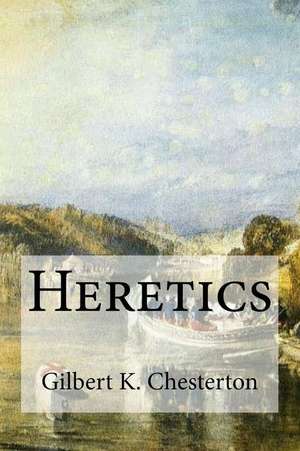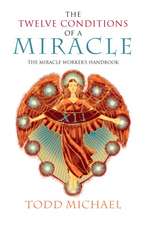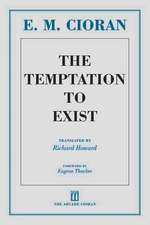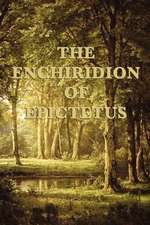Heretics
Autor Gilbert K. Chesterton Editat de Edibooksen Limba Engleză Paperback
| Toate formatele și edițiile | Preț | Express |
|---|---|---|
| Paperback (7) | 48.24 lei 6-8 săpt. | |
| – | 48.24 lei 6-8 săpt. | |
| Digireads.com – 4 noi 2019 | 60.25 lei 6-8 săpt. | |
| Digireads.com – 31 dec 2005 | 65.60 lei 38-44 zile | |
| Bibliotech Press – 10 mar 2020 | 100.02 lei 6-8 săpt. | |
| – | 111.31 lei 6-8 săpt. | |
| Simon & Brown – 12 noi 2018 | 112.64 lei 38-44 zile | |
| – | 143.09 lei 6-8 săpt. | |
| Hardback (1) | 177.21 lei 38-44 zile | |
| Simon & Brown – 12 noi 2018 | 177.21 lei 38-44 zile |
Preț: 48.24 lei
Nou
Puncte Express: 72
Preț estimativ în valută:
9.23€ • 9.66$ • 7.68£
9.23€ • 9.66$ • 7.68£
Carte tipărită la comandă
Livrare economică 31 martie-14 aprilie
Preluare comenzi: 021 569.72.76
Specificații
ISBN-13: 9781537021379
ISBN-10: 1537021370
Pagini: 130
Dimensiuni: 152 x 229 x 7 mm
Greutate: 0.18 kg
ISBN-10: 1537021370
Pagini: 130
Dimensiuni: 152 x 229 x 7 mm
Greutate: 0.18 kg
Notă biografică
Gilbert Keith Chesterton (29 May 1874 - 14 June 1936) was an English writer, philosopher, lay theologian, and literary and art critic. He has been referred to as the "prince of paradox." Time magazine observed of his writing style: "Whenever possible Chesterton made his points with popular sayings, proverbs, allegories-first carefully turning them inside out."
Chesterton created the fictional priest-detective Father Brown, and wrote on apologetics. Even some of those who disagree with him have recognised the wide appeal of such works as Orthodoxy and The Everlasting Man. Chesterton routinely referred to himself as an "orthodox" Christian, and came to identify this position more and more with Catholicism, eventually converting to Catholicism from High Church Anglicanism. George Bernard Shaw, his "friendly enemy," said of him, "He was a man of colossal genius." Biographers have identified him as a successor to such Victorian authors as Matthew Arnold, Thomas Carlyle, Cardinal John Henry Newman, and John Ruskin.
Near the end of Chesterton's life, Pope Pius XI invested him as Knight Commander with Star of the Papal Order of St. Gregory the Great. The Chesterton Society has proposed that he be beatified, a recognition accorded by the Catholic Church of a dead person's entrance into Heaven and capacity to intercede on behalf of individuals who pray in his or her name. He is remembered liturgically on 13 June by the Episcopal Church, with a provisional feast day as adopted at the 2009 General Convention.


















